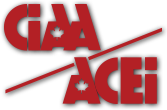RULES AND REGULATIONS
Eligibility
To qualify for the class of membership of Chartered Loss Adjuster, the candidate must be employed by a licensed and practicing CIAA/ACEI member firm and has to meet the following prerequisite criteria –
1. Must have a minimum of five (5) years employment as a licensed Insurance Adjuster Or five (5) years employment as a claims examiner, staff adjuster, or claims manager in a general insurance company or a combination thereof; within the immediate preceding ten (10) year period; with the most recent two (2) years of employment as a licensed independent adjuster.
2. Must have been a practicing licensed Independent Adjuster for five (5) years of which the last two (2) years must be in Canada.
3. Must hold a principal – “full” Independent Adjuster license in their primary – resident jurisdiction
Or
Must have attained their CIP designation with the Insurance Institute of Canada
Or
Must have successfully completed the following IIC courses:
a) C 111 Advanced Loss Adjusting
b) C 112 Practical Issues in Claims Management
c) Elective CIP Course
d) C 16 The Business of Insurance,
4. Must successfully complete further (60) hours of training set by CIAA/ACEI (provided through CIAA’s online education program) directed to the candidate’s general ability to the practical aspects of the adjustment of claims as follows:
Curriculum
- Policy Interpretation – 2 Hrs.
This 2 module course shows the student that a policy of insurance is far more than simply legalistic words written on paper. The policy is evidence of a contract between the insured and insurer. This relationship frames and modifies the intent and application of the policy on claims presented by the insured to the insurer.
- The Comprehensive General Liability Policy Parts 1 through 11 (IBC) – 10 Hrs.
This 11 module course is an in-depth study of the current Commercial General Liability policy being offered to the business community. This course is designed to help the student understand the intent, scope and coverage boundaries of the policy by the implementation of practical examples.
- Negotiations – 2 Hrs.
This 3 module course addresses the various approaches to claim negotiation, stressing the importance of a detailed investigation and understanding of the coverage, liability and damage aspects of the claim before any negotiation is attempted. The course explains various advantages and disadvantages of types of negotiating style ranging from “take it or leave it” to compromise and the best form, reaching consensus, based on the facts of the claim.
- Writing Good Letters and Reports – 1.5 Hrs. (Not accredited for CE)
This 2 module course will help insurance professionals produce good reports to their principals and clear letters to other stakeholders in the claims process. It will discuss the basic points of grammar upon which all good writing depends and the need for clarity, cogency and brevity in business writing.
- Scoping for Control (General) – 1.5 Hrs.
This 1 module course is intended as a pre-attendance primer for Scoping School. This course will introduce the basic definition of a scope, its essential elements and the pivotal role a scope plays in the setting of reserves in property loss files.
- Litigation Management – 3 Hrs.
During this course you will review what are common best practices evidenced in most litigation management service level agreements.
- Listening Skills – 1 Hrs. (Not Accredited for CE)
This course is a study of effective listening skills concepts and strategies geared towards creating a positive experience for our clients reporting claims.
- Insurance Ethics – 2.0 Hrs.
This three module course deals with the basics of ethics as applicable to the insurance profession, stressing various characteristics of behavior that makes ethics the highest standard as opposed to law, which is the minimum standard. We then examine need for insurance regulation and the applicability of insurance law other deceptive trade practice acts. The final module focuses on the “good faith” nature of the insurance relationship between the insured and the insurer, and discusses how insurers can become involved in “bad faith” litigation and its adverse results.
- Good Faith Claims Handling – 1.5 Hrs.
This 2 module course is study of good faith dealings in claims. This course is designed to help the student understand what good faith is and the industry standards, concepts and case law associated with bad faith claims.
- Dispute Resolution – 1.0 Hrs.
This one module course describes how quantum disputes under the property policy are resolved according to the Insurance Act of Ontario’s appraisal process. This cited act is mirrored by those in other common law provinces.
- Auto Physical damage Parts 1 through 7 – 9.5 Hrs.
The intent of this 7 module auto technical course is to give you insights into vehicle construction, damageability and repair so you can better understand the repair process and help understand and settle first party and liability auto claims.
- Advanced General Casualty I – 4 Hrs.
This 5 module course will help the adjuster better grasp contractual relationships that affect commercial liability as well as the similarities and differences between Employers Liability claims and Employment Practices Liability claims. The course also instructs on the medical aspects of adjusting, including an explanation of more common medical claims issues, as well as an introduction to professional liability claims. Finally, Advanced General Casualty I will help prepare the adjuster for handling a serious injury or wrongful death claim.
- Advanced General Casualty II – 1.5 Hrs.
In this one module course the adjuster will gain an understanding of and be able to discern primary, excess, non-concurrent, and overlapping coverage issues. The course deals with the complex nature of commercial risks where multiple types and layers of coverages may become involved in complex and catastrophic liability losses.
- Adjuster Skills – 1.5 Hrs.
This one module course helps the adjuster with one of the largest difficulties faced by busy people-time management.
- Adjuster Math – 3.5 Hrs.
This 3 module course helps the property adjuster become proficient with the basic math and geometry that they will encounter when scoping or estimating losses. The student will learn how to calculate linear, area and volume quantities of regular and irregular shapes.
- Recovering Labour Costs in Commercial Claims – 1.0 Hrs.
This one module course examines a common claims scenario in commercial losses. When the insured uses their own workforce to help with restoration work, should they be indemnified for the labour costs and if so, for how much.
- Adjuster Law and the Role of the Adjuster – 3.5 Hrs.
This 3 course module will introduce the new adjuster to concepts in Canadian common law regarding contracts and tort liability. It also helps define the adjuster’s role in the claims process and the attributes needed to be a successful liability adjuster.
- Business Interruption Losses – 3 Hrs.
After completing this lesson you should be able to understand key concepts of business interruption insurance, describe key financial statements that help calculate a loss, adjust basic retail business interruption losses and identify extra expenses that might or might not be covered under extra expense coverage. You will also examine a common claim scenario in commercial losses.
- Developing Early Loss Reserves on Property Files – 3.5 Hrs.
This four-module course is an introduction to the thought processes that must be utilized by adjusters when setting up early loss and expense reserves on a property loss. The primary learning objectives are for the student to be aware of the possible exposures in a loss that must be reserved for and the appreciation of the need for accurate and timely reserves.
- Statement Taking Basics – 1.5 Hrs.
This two-module course introduces the student to procedural and practical considerations in statement taking and the statement’s importance in claims investigations.
- Statement Fundamentals – 2.0 Hrs.
This two module course is the study of the fundamental investigative tools used by adjusters across all lines of insurance claims. It is designed to help the student understand how a statement helps to confirm coverage, assess liability and help establish the quantum of a claim.
Application & Fee
Step 1: Download & Complete the Application
Click here to download the application
Step 2: Send Application & Supporting Documents to CIAA
Chartered Loss Adjuster (CLA) accreditation applicants are required to complete an application and provide documentation supporting the prerequisite requirements. Submissions to be sent to CIAA National Office, 2 – 3651 Major Mackenzie Dr. W., Suite #365, Vaughan, ON L4H 0A2 and include fee of $250 (includes framed certificate) payable to CIAA.
Step 3: Pay the Application Fee
There is a fee of $250.00 (includes framed certificate), which can be paid online by clicking the button above and following the checkout steps or by including a cheque payable to CIAA when completing Step 2 (above).
Note: there is a 3% service charge for payments made online.




